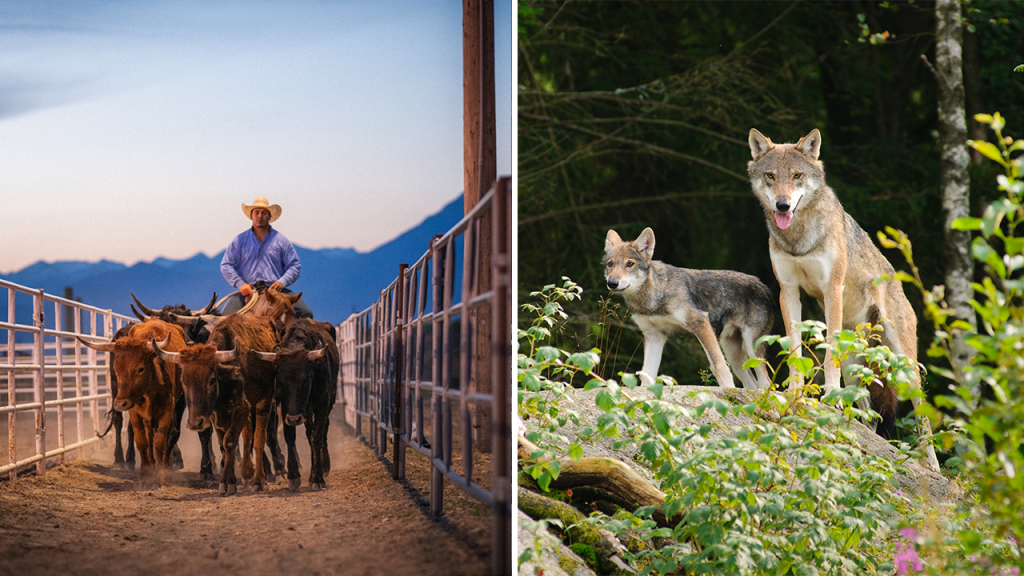Colorado livestock producers have sent letters to Colorado Parks and Wildlife (CPW) and Governor Jared Polis calling for wolves to be lethally removed due to the predators preying on and killing their cattle. The ranchers argue that non-lethal methods have not been effective in controlling the situation. Since April 2, twenty-four cattle and sheep have been killed by wolves, including the most recent incident of eight sheep on July 28. The Colorado Cattlemen’s Association, the North Park Stockgrowers Association, the Middle Park Stockgrowers Association, and the Routt County Cattlemen’s Association highlighted an instance where CPW rejected a call to remove two wolves responsible for multiple depredations, stating that livestock producers should not have to bear the consequences of protecting apex predators.
Non-lethal efforts to deter wolves from attacking livestock include physical or psychological barriers such as fencing, lights, sound devices, and guard dogs. Ranchers can also modify management practices, like moving livestock away from known wolf dens and removing carcasses that could attract predators. In contrast, Montana ranchers faced similar challenges and authorized the lethal removal of 31 wolves in 2023. Governor Polis remains committed to upholding the will of Colorado voters and supporting CPW in implementing the Wolf Restoration and Management Plan approved by CPW commissioners. CPW and the Colorado Department of Agriculture have been working closely with ranchers to provide funding, staff, range riders, non-lethal deterrents, and a working group to strengthen communication and explore alternatives to address chronic depredation.
The unanimously adopted Colorado Wolf Management Plan includes lethal control as a last resort and allows for the immediate killing of any wolf caught attacking cattle, sheep, or working dogs. CPW Director Jeff Davis stressed the agency’s commitment to working collaboratively with agricultural stakeholders through the voter-approved wolf restoration effort. CPW continues to provide funding, resources, range riders, and staff to resolve conflicts between wolves and livestock, focusing on education and non-lethal management techniques to support ranchers. The ranching community in Colorado is calling for the removal of problem wolves to prevent future depredations and protect their livestock and livelihoods.
The Colorado ranchers’ pleas for lethal removal of wolves come in response to ongoing losses of cattle and sheep to wolf predation, despite efforts to implement non-lethal deterrence strategies. As the conflict between wolves and livestock escalates, ranchers are urging CPW and Governor Polis to take immediate action to remove problem wolves and prevent further losses. Wolf depredations have a significant impact on ranching communities, threatening the sustainability of livestock operations and the livelihoods of producers. By addressing the issue of wolf predation through targeted removal of problem wolves, ranchers hope to protect their livestock and maintain the viability of their operations.
The debate over wolf management in Colorado highlights the challenges faced by livestock producers in coexisting with apex predators in a shared landscape. While non-lethal methods play a role in minimizing conflicts between wolves and livestock, there is a need for targeted action to address chronic depredation and protect the interests of ranchers. Governor Polis’s commitment to supporting the Wolf Restoration and Management Plan underscores the importance of finding a balance between conservation goals and the needs of ranching communities. Collaborative efforts between CPW, the governor’s office, and ranchers are essential to developing effective solutions for managing wolf populations while safeguarding the livelihoods of Colorado’s agricultural producers.


